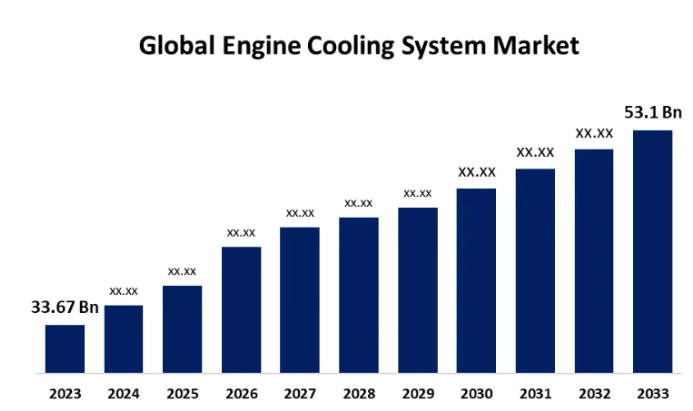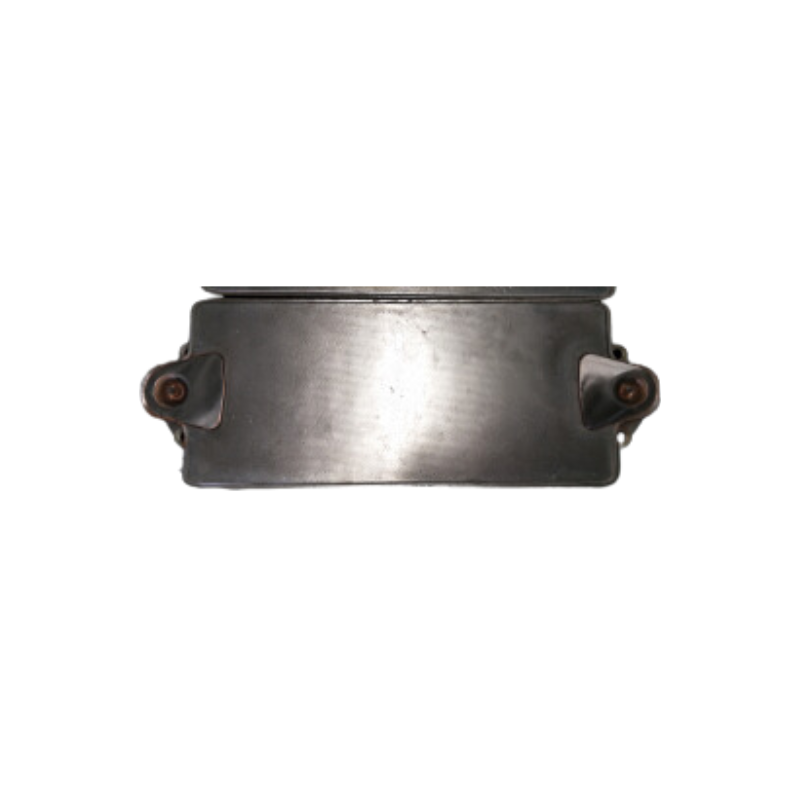Global Engine Cooling System Market Size To Worth USD 53.1 Billion By 2033 | CAGR of 4.66%
Date: 2024-04-11 Categories: Industry News Hits: 400
The Global Engine Cooling System Market Size was Valued at USD 33.67 Billion in 2023 and the Worldwide Engine Cooling System Market Size is Expected to Reach USD 53.1 Billion by 2033, according to a research report published by Spherical Insights & Consulting. Companies Covered: Denso Corporation, Valeo SA, Calsonic Kansei Corporation, Perkins Engines Company Ltd, MAHLE GmbH, BorgWarner Inc., Modine Manufacturing Company, Visteon Corporation, Schaeffler AG, Continental AG, Delphi Technologies, Robert Bosch GmbH, and Other Key Vendors.
New York, United States, March 28, 2024 (GLOBE NEWSWIRE) -- The Global Engine Cooling System Market Size is to Grow from USD 33.67 Billion in 2023 to USD 53.1 Billion by 2033, at a Compound Annual Growth Rate (CAGR) of 4.66% during the projected period.
Get a Sample PDF Brochure: https://www.sphericalinsights.com/request-sample/3898
An engine produces a lot of heat when it runs, so it must be cooled to protect the motor and other components. During a power stroke, gasoline is consumed, generating enormous heat and raising the vehicle's temperature. If excessive heat is not properly dissipated, it can damage the engine and its surrounding components. Thus, an engine cooling mechanism is required. The automobile engine coolant equipment is a critical component of the vehicle that regulates engine temperature by removing excess heat through fluid or airflow. Furthermore, continuous advancements in cooling system technologies, such as the introduction of electric cooling fans, variable speed pumps, and advanced materials, are driving the automotive engine cooling system market. Motor cooling fans will be in high demand due to raised secondary market sales and aftermarket demand. These factors are expected to drive the global automotive engine cooling system market over the forecast period. However, the higher cost of these systems may serve as a deterrent, particularly in price-sensitive markets. Furthermore, incorporating advanced cooling systems into vehicles can be a complex process requiring significant changes and adaptations.

 Mercedes Atego
Mercedes Atego  VoIvo
VoIvo  VoIvo
VoIvo  VoIvo
VoIvo  VoIvo
VoIvo  Scania
Scania  UD460
UD460  Renault
Renault  Mercedes Benz
Mercedes Benz  VoIvo FH420
VoIvo FH420  Scania
Scania  Scania
Scania  Iveco
Iveco  Scania
Scania  UD490
UD490